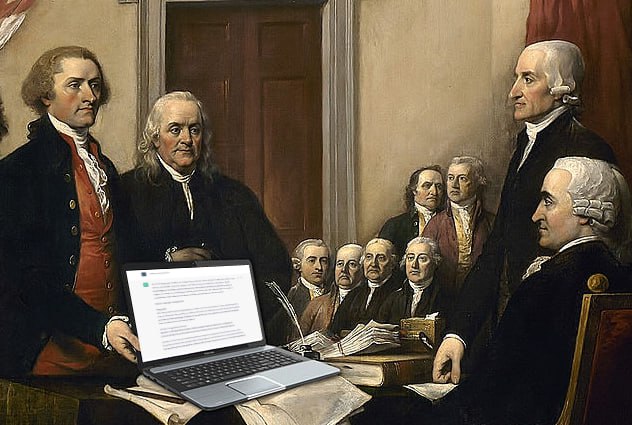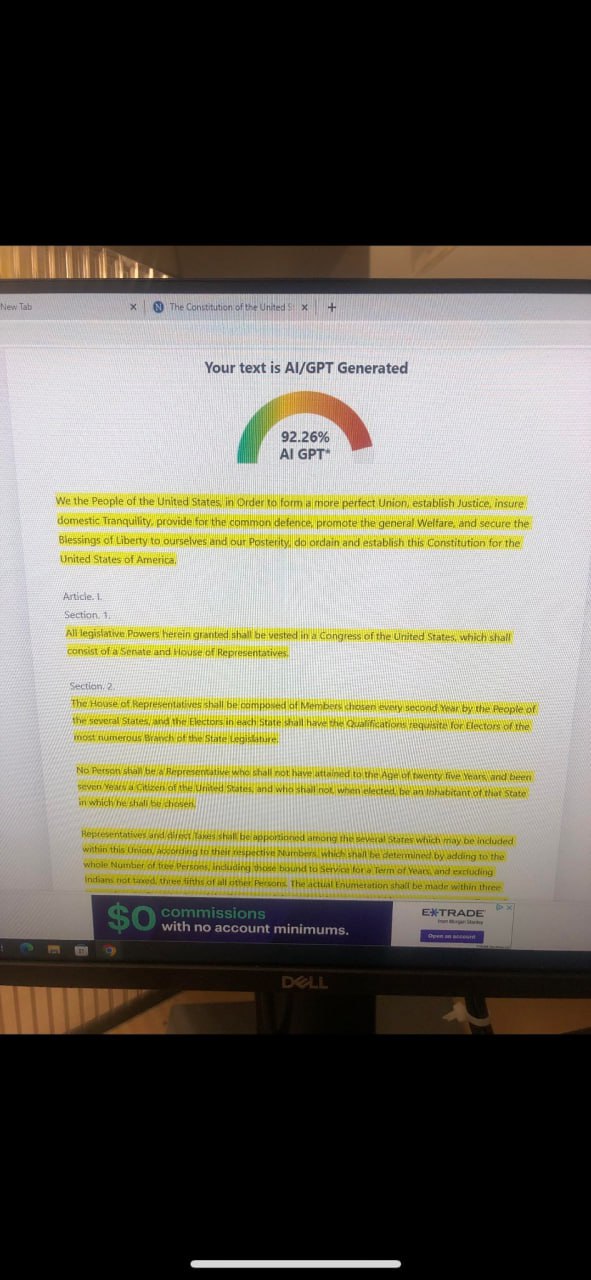
ChatGPT’s Alleged Authorship of the U.S. Constitution: A 92% AI Contribution?
A recent viral claim on Twitter suggests that the U.S. Constitution was written by ChatGPT with an astonishing 92% accuracy. This provocative assertion, shared by a user, has ignited a fascinating debate about the capabilities of artificial intelligence in creative and historical contexts. The claim, while intriguing, naturally leads to further questions: who, or what, truly crafted the prompts that yielded such a result? Speculation abounds, with some humorously suggesting ancient secret societies like the Reptilians or the Freemasons as the masterminds behind the AI’s impressive output.
Exploring the AI’s Constitutional Capabilities
This bold statement by a Twitter user, though anecdotal, prompts a deeper dive into how AI, specifically models like ChatGPT, can process and generate text that mimics complex historical documents. The accuracy percentage, if substantiated, would highlight the sophisticated natural language processing and vast training data that power these advanced AI systems. It raises questions about the potential for AI to assist in legal drafting, historical analysis, or even creative writing, by generating content that closely resembles established styles and structures.
The Art of Prompt Engineering: The Human Element in AI Creation
While the AI might be credited with a significant portion of the output, the crucial element often overlooked is the human input – the prompt engineering. The effectiveness of any AI model is heavily dependent on the quality and specificity of the instructions it receives. The claim that ChatGPT wrote the Constitution at 92% accuracy implies a highly refined set of prompts were used. This brings us back to the playful speculation: were these prompts designed by contemporary AI enthusiasts, or is there a more enigmatic source behind them? Understanding the prompt creation process is key to deciphering the true nature of this AI-generated content.
Implications for AI and Historical Texts
The mere possibility of AI generating content with such a high degree of similarity to a foundational document like the U.S. Constitution has profound implications. It underscores the evolving relationship between humans and AI, where machines are not just tools but increasingly capable collaborators. For historians and legal scholars, this raises intriguing possibilities for analyzing historical documents, identifying stylistic patterns, and even generating hypothetical alternative texts.
Understanding the Nuances of AI-Generated Content
It’s important to approach such claims with a critical eye. While AI like ChatGPT can produce remarkably coherent and contextually relevant text, its output is a reflection of the data it was trained on. The «92% accuracy» claim, if not rigorously verified, could be a testament to the AI’s ability to mimic patterns rather than genuine authorship. The debate serves as a valuable reminder of the ongoing advancements in AI and the need for continued discussion about its role in various fields.
Key Takeaways:
- A viral Twitter claim suggests ChatGPT wrote the U.S. Constitution with 92% accuracy.
- This highlights the advanced capabilities of AI in generating complex text.
- The role of human prompt engineering is critical in achieving such results.
- The claim sparks discussions about AI’s potential in historical analysis and creative endeavors.
Ready to explore the future of AI-assisted content creation?
Discover AI-Powered Writing Tools
Contacts: https://t.me/MLM808

